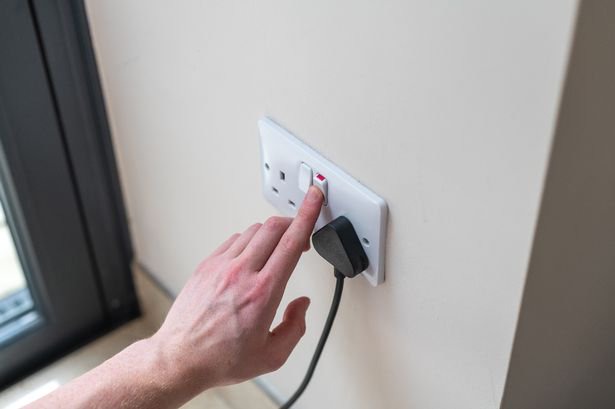
Households are being warned of the five biggest ‘energy-draining’ appliances that you should ‘never’ leave on standby. Many people leave their devices on standby because it is quicker to use them when needed.
But although it may seem more convenient to leave frequently-used appliances like TVs, computers and game consoles on, standby mode consumes unnecessary electricity, adding up to higher energy bills over time.
Energy experts at Free Heating Scheme have now revealed the top five most energy-draining devices. Giving advice, they shared: “Leaving devices on standby may seem like a time-saver, but it can steadily consume energy and drive up your electricity bills. Although standby mode uses less power than when a device is fully operational, many appliances still draw electricity even when they seem to be off.
“Over time, this hidden energy use can accumulate, adding to the rising energy costs many households are facing this winter. By turning them off properly, you can significantly reduce your energy expenses and help lower your home’s environmental impact.”
Top 5 biggest energy-draining appliances:
Computers
While keeping a desktop computer in standby mode might offer quicker log-ins, it can drive up your energy costs. Even in standby, desktop computers continue to use electricity, which can be costly over time.
Typically, a desktop computer left in standby can add about £10 to £15 annually to your electricity bill. Although this may seem minimal, turning off your desktop completely when it’s not in use can lead to significant savings. Small changes like this can make a considerable impact on your overall energy bill.
Satellite boxes
Satellite boxes are everyday appliances that can have a surprising impact on your energy bills. While these devices often have a standby mode to reduce power consumption, they still draw a significant amount of energy even when not in active use!
Many people believe that leaving their satellite box on standby is sufficient. However, simply turning off the TV while leaving the box on standby can result in unnecessary energy consumption that accumulates over time. Satellite boxes can be big energy drainers, and properly switching them off when not in use can lead to a noticeable reduction in your energy bill.
Microwaves
Keeping your microwave on standby may appear harmless, but it can gradually increase your electricity bill. Microwaves, like many other appliances, continue to use power even when they’re not actively in use. Though the energy consumption in standby mode is relatively low, it accumulates over time.
It’s estimated that a microwave left on standby can cost between £3 and £6 annually. Turning it off at the wall when it’s not needed can add up to create large savings. Coupled with other energy-saving practices, this small adjustment can contribute to a long-term reduction in your energy costs.
Older appliances
Older appliances often fall short in energy efficiency compared to their newer counterparts. When these appliances, like an aging fridge, have worn-out parts, they can use significantly more energy to operate effectively.
For instance, fridges that are over 10-15 years old are typically much less energy-efficient than modern models. They can consume between 100 to 200 kWh per month, which adds up to approximately 1,200 to 2,400 kWh per year, depending on their age, make, and condition.
To illustrate the impact, at the average UK electricity rate of 34p per kWh, running an old fridge could cost between £408 and £816 annually. In contrast, newer, energy-efficient fridges use about half the amount of energy, potentially saving you a considerable sum on your electricity bill.
If your fridge is more than a decade old, upgrading to a modern, energy-efficient model could be a wise investment, as it could result in large savings in the long-term.
Games consoles
High-powered gaming consoles come equipped with energy-saving features, but they also have their drawbacks. These devices often include an on/off switch that places them in a low-power standby mode.
Don’t miss
Many users, however, either forget to turn off their consoles completely or leave them running while switching off the TV, leading to unnecessary energy costs. Experts estimate that gaming consoles contribute to about 6% of a typical household’s energy bill.
While this percentage might not appear substantial, consistently turning off your console can result in significant savings over time. The Energy Saving Trust also advises keeping your console updated, as this can improve its energy efficiency.




